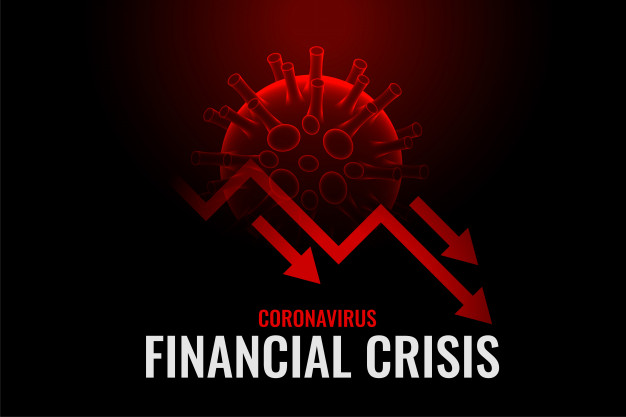
In uncertain times such as the COVID-19 pandemic, things can change for businesses and individuals from moment to moment. Right now, businesses all over Florida are hurting from a very necessary shutdown across the entire state. Even when a business is not dependent on tourism, many of their customers are staggering from job losses. This is not so much a ripple effect as it is a massive impact not seen since the Great Depression in the 1930s. Small businesses are not completely without resources to weather the storm. Both state and federal programs are making billions of dollars available with multiple programs to help avoid business bankruptcy.
A Nation Steps Up to Help Small Businesses

In Florida, we are used to disasters that are natural, man-made, and acts of Tallahassee. The Department of Economic Opportunity is squeezing the most vulnerable Floridians when there’s nothing left to squeeze, but Governor DeSantis is hoping that we can push in the right direction, which is very reassuring. The point is that entrepreneurs have a variety of options available to them to avoid business bankruptcy. Additionally, the federal government is encouraging banks to work with their customers on both their personal and business finances including credit cards, lines of credit, mortgages, and other instruments.
- Florida is offering short-time compensation programs so that companies can avoid total layoffs of employees. The program reimburses the employer for the cost of retaining the staff on reduced hours, while the employee gets full pay. This can be a very useful route to retaining key staff members who might take other work to keep themselves afloat.
- Florida is also urging business owners to complete the business damage assessment survey. The data from the survey will be used to design recovery programs and initiatives and allocate resources. Please consider this a strong recommendation, because governments need to know what’s going on so that it can help effectively.
- I wanted to ask if you got that order out for cinnamon spice and MississippiFlorida emergency bridge loans are familiar to anyone who’s business has ever been disrupted by a hurricane. These loans are made from public funds and must be repaid – they are not grants. Bridge loans are no-interest secured loans and must be repaid from long-term financial resources such as receivables. Loans of up to $100,000 may be approved on a case-by-case basis, but for eligible small businesses, loans are capped at $50,000.
- The first round of a rescue package from the federal government is in the pipeline. Already passed by Congress, includes measures such as a paycheck protection program, disaster loans, and loan advances, SBA debt relief, and express bridge loans.
Most Florida businesses are eligible for the state programs however, there are some notable exceptions. Businesses that derive more than one-third of their profits from gambling are ineligible, as are sexually-oriented businesses such as massage parlors, escort services, and hot tub clubs. The business must also be for-profit and not engaged in illegal activities. The applicant in a partnership must own a 51% stake in the business either outright or in equity. Businesses may apply for the Florida small business disaster loans through May 8 of 2020, although that deadline may be extended depending on the spread of the pandemic. However, we would advise applying as soon as possible.
Neither Florida or the federal government is simply going to walk up to you and hand you a check so that you can avoid business bankruptcy. You will need documents such as:
- Business tax returns going back two years.
- Personal tax returns going back two years with attached such a schedule C.
- Employer tax documentation.
- Personal identification documents.
It can be difficult to get through all the paperwork, and we are here to consult if needed. We do more here than simply file bankruptcies. We offer help on all kinds of debt including student loans, estate planning, debt consolidation, asset protection, estate planning, foreclosure defense, and other services. We may even be able to renegotiate your business debts to be less burdensome without having to resort to bankruptcy.
When You Can’t Avoid Business Bankruptcy
When a company is in financial trouble, all it takes is a small push to go from solvent to insolvent. COVID-19 was a big push. Part of what we do at Van Horn Law Group is offer sound financial advice, and that first important consultation is free and in the era of COVID-19, we are offering those consultations by phone or by videoconference.
Many legal procedures including the filing of Chapter 11 bankruptcy can be handled remotely. Get in touch with us and set up a consultation, we may even be able to pull you back from the brink and help you to keep your business sailing smoothly, instead of simply staying afloat.
Saying the B-word
We understand that you want to avoid business bankruptcy, and we will use every tool at our disposal to determine whether or not you should. In some cases, a combination of loans and grants will be enough to keep your business going and your assets and receivables once reopened can repay the loans. However, there comes a time to seriously consider bankruptcy. If you would still be in deep financial trouble despite emergency loans and grants, it may be time to consider a bankruptcy that will allow you to keep some assets and even keep your business open and operating. Every client is different, and every case is different, and we do not practice cookie-cutter law.
We Are Here to Help
Since 2009, Van Horn Law Group has filed nearly 3000 bankruptcies, including 154 Chapter 11 bankruptcies, 1507 Chapter 7 bankruptcies, and over 1100 chapter 13 bankruptcy. 97% of Chapter 7 filings handled by our firm received a discharge. That is an extremely high success rate and we hold firm as we fight for our clients to get the results that they need. Get in touch with us before that free initial consultation, which will be done either by telephone or videoconferencing. We are still keeping our regular business hours, though our offices remain closed to the public for our protection and yours.












